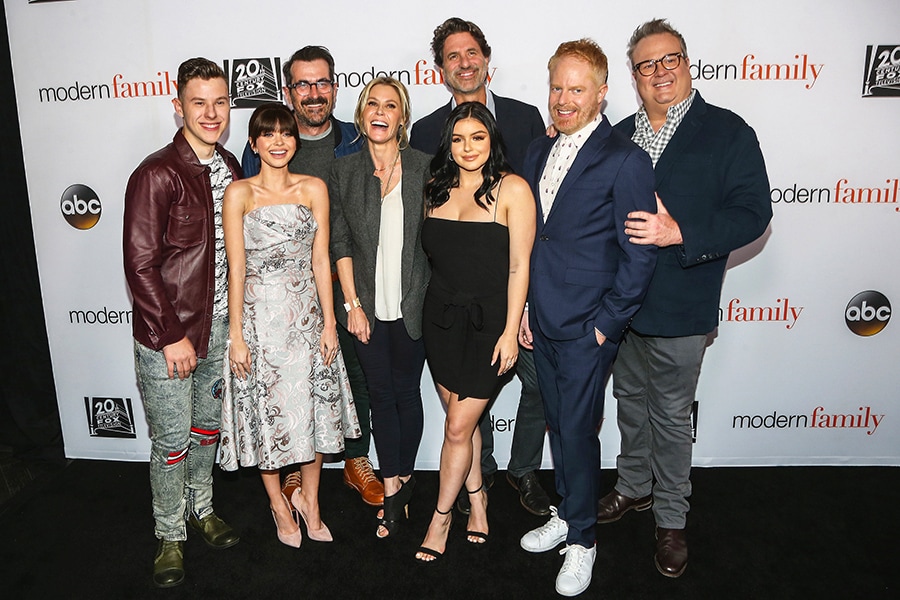
'Modern Family' goes in for a group hug
After 11 seasons, the ABC comedy ended its Emmy-winning run with a bunch of new beginnings. The creators talked about the emotional finale and the added resonance of having it air during quarantine
 Image: Getty Images
Image: Getty Images
(Ask a Showrunner)
This interview contains spoilers for the “Modern Family” series finale.
After 11 seasons, 250 episodes and five best comedy series Emmys, ABC’s “Modern Family” wrapped on Wednesday with an hourlong finale. Yet it often felt more like a beginning than an ending, as the members of the show’s extended clan were sent off in new directions.
Phil and Claire (Ty Burrell and Julie Bowen) decided to embark on a cross-country RV trip after all three of their kids moved out of the house; Jay and Gloria (Ed O’Neill and Sofia Vergara) planned to spend the summer visiting her relatives in Colombia; and Mitchell and Cameron (Jesse Tyler Ferguson and Eric Stonestreet) moved to Missouri after Cameron landed his dream job as a college football coach.
“Not to get too pretentious about it, but you hand the series over to the viewers at the end to do with the characters what they want,” Christopher Lloyd, who co-created the sitcom with his fellow “Frasier” veteran Steve Levitan, said in a phone interview Wednesday. “To launch everybody on these new paths seemed like a hopeful way to end the series.”
©2019 New York Times News Service




